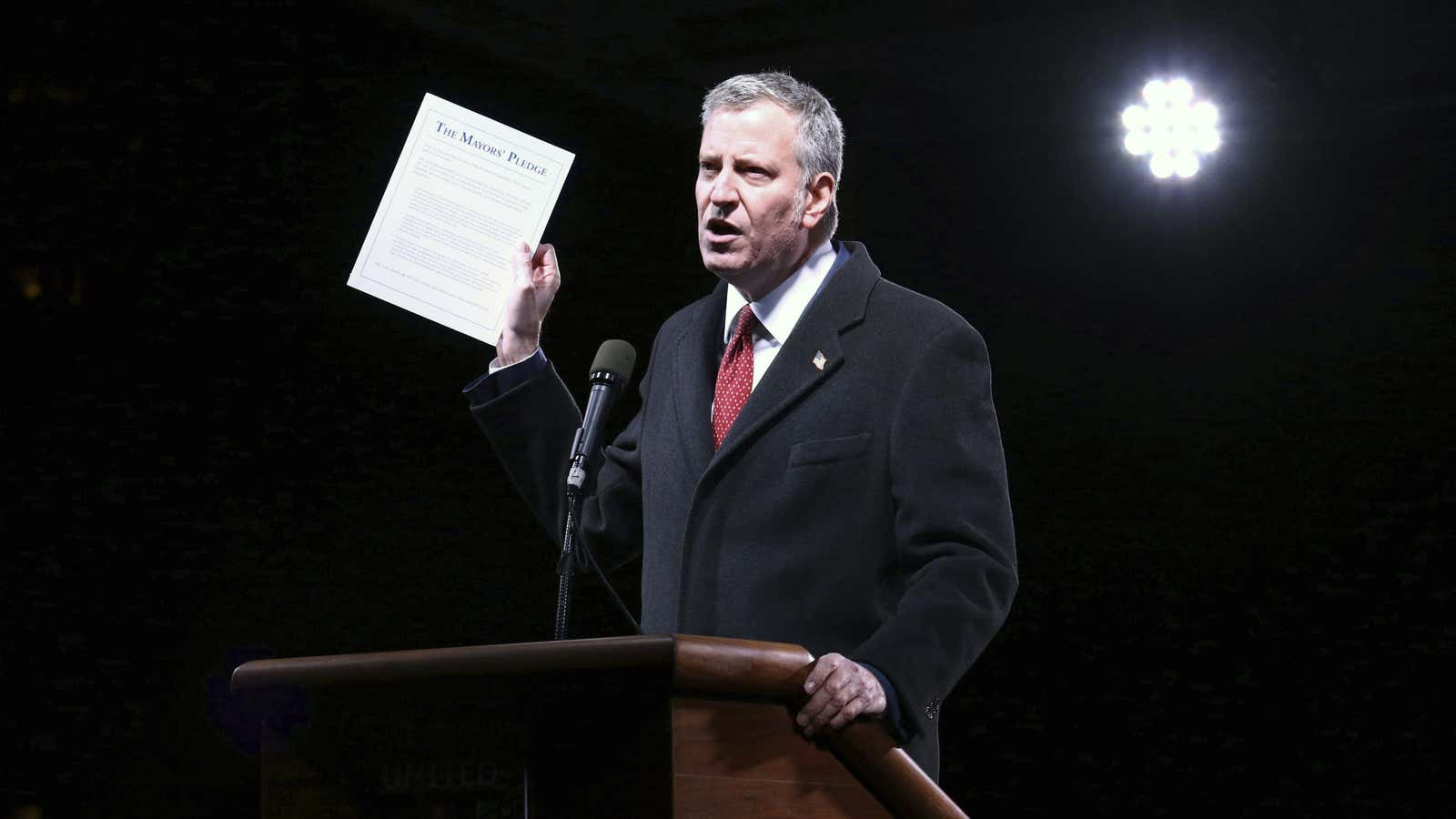US president Donald Trump turning his back on the Paris climate agreement would send a terrible signal about the country’s commitment to staving off an environmental catastrophe—the US alone is responsible for 15% of the world’s CO2 emissions.
But there’s at least some hope: millions of Americans will stay committed to the agreement no matter what Trump does. How? Through their cities.
Eyeing Trump’s repeated threats about leaving the Paris accords, Los Angeles mayor Eric Garcetti last November rallied 71 US mayors, whose cities are home to tens of millions of people, to sign an open letter calling on the then-president-elect to stay in the agreement. Garcetti didn’t mince his words in an interview with Quartz in January, saying: “If we were to withdraw…from the Paris accords, I’ll tell you what we’re going to do: we’re going to adopt it locally.”
New York mayor Bill de Blasio affirmed the message today, amid the most serious speculation to date that Trump will trigger an exit from the agreement.
The six largest cities in America, the mayors of which each signed Garcetti’s letter, are home to about 21 million people just by themselves. Add to that the 40 million people in the state of California—where governor Jerry Brown has promised (paywall) to “take significant action” if the US abandons the Paris agreement—and Trump’s potential action at the federal level is significantly undermined.
America’s urban areas are home to more than 80% of the country’s population. As social scientist and visionary political theorist Benjamin Barber, author of If Mayors Ruled the World, told Quartz in a Q&A last year, “About 80% of greenhouse gas emissions come from cities and cities also control about 80% of GDP. They can do a lot to combat climate change, whether or not Trump undermines the COP21 agreement.”
Barber, who died of cancer in April, days after his last book Cool Cities: Urban Sovereignty and the Fix for Global Warming was published, also argued that cities’ power extends far beyond complying with the Paris agreement.
That’s shown by a host of initiatives US mayors are taking to cut carbon emissions locally. Atlanta mayor Kasim Reed, for example, claims he can cut emissions by 25 percentage points in his city by picking off “low-hanging fruit” like retrofits on wasteful buildings and incentives to businesses to cut energy use. “To take action in the city of Atlanta, the center of the ninth-largest metro in the country…it takes my decision and eight votes from [the city] council,” he said in an interview last year. “In my opinion, that’s very efficient.”
It isn’t just altruism that compels the nation’s cities to take action. With solar panels becoming cheaper than fossil fuels in 2016, it’s making less and less economic sense to shy away from alternative energy sources. “Even if you didn’t believe in climate change, [green energy] is a pure driver of economic activity,” Chicago mayor Rahm Emanuel said in December. “The city is never going back from this.”
